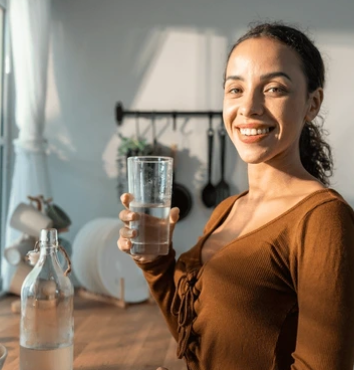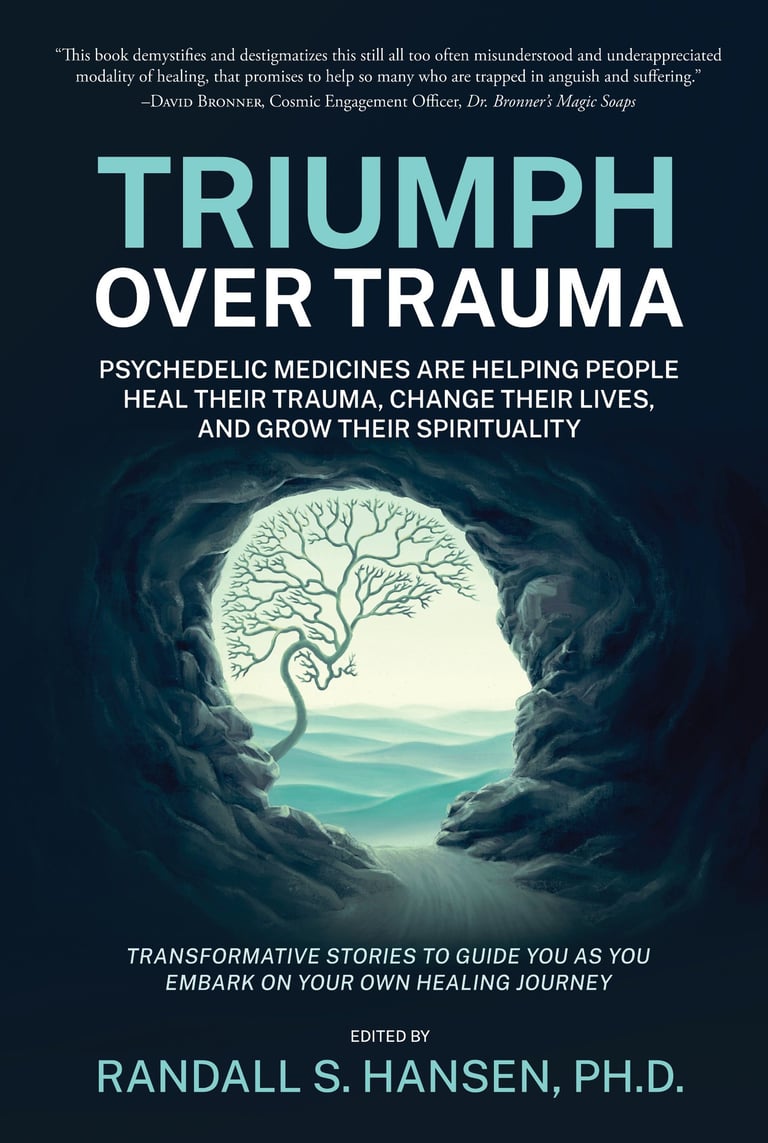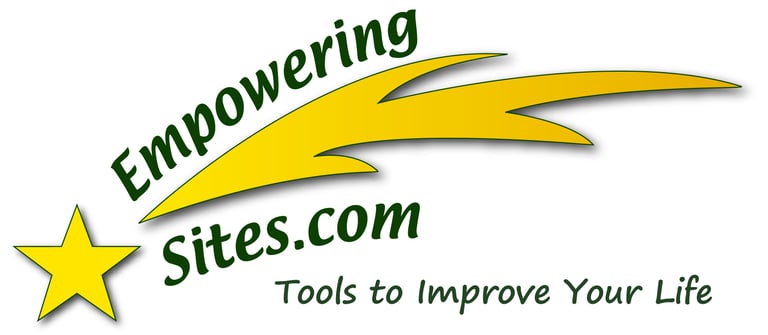How Thirst Often Confuses People Into Eating More
Are you hungry – or thirsty?
Did you know that a majority of people around the world suffer from chronic dehydration? Older adults have the highest percentage of chronic dehydration.
Very few of us drink enough fluids throughout the day, especially fluids with electrolytes and minerals that support bodily functions. Our organs, muscles, kidneys, skin… everything needs adequate hydration to function. The human body is about 60 percent water, though it varies anywhere from 45 to 75 percent across the population.
Hydration/water is especially important for these functions:
Brain health. Studies show just a slight drop in our hydration can cause impairment in many brain functions.
Weight loss. Liquids can be very filling, so it always makes sense to drink more when attempting to lose weight. Furthermore, some studies show that increasing water intake can increase metabolism; thus, water has the potential to increase satiety and boost metabolic rate, leading to weight loss.
Headaches and migraines. There’s some evidence that dehydration may trigger some headaches and migraines.
Bowel movements. Hydration appears to help keep constipation at least partially at bay. Increasing hydration may help decrease constipation.
Limiting kidney stones. These very painful mineral crystals that form (and get stuck) in the urinary system may be kept under better control by keeping a high level of hydration, especially with those who have had previous bouts with kidney stones.
We lose water throughout the day, with water being lost via the skin, lungs, kidneys, and GI tract – and it’s imperative that we replace what we lose.
Drinking/sipping should be something we do throughout the day – not to excess, but to be fully hydrated. We do get about 20 percent of the required hydration from eating, assuming we are eating things like watermelon, strawberries, spinach, celery, zucchini – foods high in water content.
How do you know if you are hungry or thirsty? Drink a full glass of water and wait 20 minutes. Was the water enough – or are you still hungry?
Finally, most experts recommend daily water intake as a percentage of your weight. Thus, make it a point to drink one-half to two-thirds of an ounce of water for each pound of body weight. For example, if you weigh 175 pounds, the ideal you should be consuming is approximately 105 ounces – about 6.5 16-ounce glasses per day. If you are extremely active, increase your hydration.
Tips for Staying Hydrated
Some people go to the extreme of setting an alarm every hour to remind them to hydrate, but the easiest solution is to always have a bottle of water/fluids with you – at work, at home, while commuting and traveling. You don’t need to keep a spreadsheet of your hydration, but if it makes you feel better, go for it.
Besides water, which is something most of us are drinking, what else can you drink to keep you hydrated – and perhaps is not as “boring” as plain water? Before getting to that, let’s clarify that you should be drinking filtered water unless you are drinking straight from a clean well.
Some holistic health experts go as far as to suggest a reverse-osmosis (RO) for all drinking water, but something that uses a charcoal and fluoride filter, such as a Berkey, is a relatively inexpensive but useful water filtration system that’s not quite as intense as an RO system.
How can you make your hydration more fun? Try some of these.
Flavored Waters: Using a base of your filtered water, add a splash of real fruit elements, such as watermelon, cucumber, lemon, berries.
Unsweetened Teas/Coffees: All good, but be careful of consuming too much caffeine. If concerned, you can drink decaffeinated versions if you like them.
Naturally Flavored Sparkling Waters: These are waters that have been carbonated and flavored with real fruit essences, not sugars. (Some may be sweetened with stevia or monk fruit, but the best have no sweeteners.) One popular example is Spindrift. An herbal brand is Aura Bora. Plain sparkling water is also fine.
No-Sugar Electrolyte-Infused Water: Many excellent brands exist in this category as many holistic practitioners have developed their own blends/brands. My current favorite (with many fun flavors) is Ultima Replenisher, but other popular brands include JUNP Electrolytes Powder and Seeking Health.
Coconut Water: Such a pure drink that contains naturally occurring electrolytes. Make sure you buy organic, no-sugar, not made-from-concentrate coconut water, with only one ingredient. Popular brands include Vita Coco, Zico Natural, and Harmless Harvest.
Green Smoothies: A favorite drink in the warmer months, these are a combination of water, fruits, and vegetables blended together – with no sugar or sweeteners. These drinks not only provide great hydration but are also packed with nutrients and fiber from the fruits and vegetables.
Soup Broth: Make it a bone broth soup and you exponentially improve the nutrients in your soup. A naturally-produced broth produced from organic vegetables and/or meats/bones from pastured animals is a wonderful meal or tasty and hydrating snack.
Milk and Milk Alternatives: Side-stepping the argument over dairy and dairy substitutes, these drinks, in moderation, are another good source for hydration. If you like these products and they cause no bloating or stomach issues, then do consume them – just remember to only drink the full-fat versions for the extra benefits.
Final Thoughts on Hydration
Hydration is essential; it’s likely you are not getting enough water, especially if you are active. More importantly, your hydration should not solely be water, as the body also needs minerals, which is why coconut water, broths, and electrolytes are great ways to supplement water consumption.
Some ways to estimate if your fluid intake is adequate:
You rarely feel thirsty
You don’t crave snacks
Your urine is pale yellow or clear
Finally, can you overdo hydration? Yes, in extremely rare situations, one can overhydrate, which occurs when there is too much water/fluids in the body.
Remember that while hydration is essential, so too is the quality of the foods you are consuming – which should be nutrient-dense foods made from scratch using the best quality ingredients you can afford.


Dr. Randall Hansen is an advocate, educator, mentor, ethicist, and thought-leader... helping the world heal from past trauma. He is founder and CEO of EmpoweringSites.com, a network of empowering and transformative Websites, including EmpoweringAdvice.com.
He is the author of the groundbreaking Triumph Over Trauma: Psychedelic Medicines are Helping People Heal Their Trauma, Change Their Lives, and Grow Their Spirituality and the well-received HEAL! Wholeistic Practices to Help Clear Your Trauma, Heal Yourself, and Live Your Best Life.
His latest book is a true game-changer: The HEALing Revolution Diet: A Science-based Approach to Heal Your Gut, Reverse Chronic Illnesses, Lose Weight, Clear Your Mind, and Increase Longevity.
Dr. Hansen's focus and advocacy center around true healing ... healing that results in being able to live an authentic life filled with peace, joy, love. Learn more by visiting his personal Website, RandallSHansen.com. You can also check out Dr. Randall Hansen on LinkedIn.






